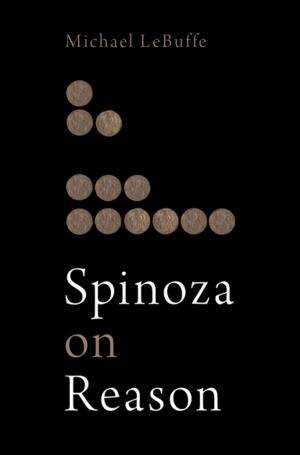Playing across a Divide
Israeli-Palestinian Musical Encounters
Nonfiction, Entertainment, Music, Theory & Criticism, Ethnomusicology, Music Styles, Religious| Author: | Benjamin Brinner | ISBN: | 9780199884155 |
| Publisher: | Oxford University Press | Publication: | December 21, 2009 |
| Imprint: | Oxford University Press | Language: | English |
| Author: | Benjamin Brinner |
| ISBN: | 9780199884155 |
| Publisher: | Oxford University Press |
| Publication: | December 21, 2009 |
| Imprint: | Oxford University Press |
| Language: | English |
In the last decade of the twentieth century and on into the twenty-first, Israelis and Palestinians saw the signing of the Oslo Peace Accords, the establishment of the Palestinian Authority, the assassination of Israeli Prime Minister Yitzhak Rabin, and the escalation of suicide bombings and retaliations in the region. During this tumultuous time, numerous collaborations between Israeli and Palestinian musicians coalesced into a significant musical scene informed by these extremes of hope and despair on both national and personal levels. Following the bands Bustan Abraham and Alei Hazayit from their creation and throughout their careers, as well as the collaborative projects of Israeli artist Yair Dalal, Playing Across a Divide demonstrates the possibility of musical alternatives to violent conflict and hatred in an intensely contested, multicultural environment. These artists' music drew from Western, Middle Eastern, Central Asian, and Afro-diasporic musical practices, bridging differences and finding innovative solutions to the problems inherent in combining disparate musical styles and sources. Creating this new music brought to the forefront the musicians' contrasting assumptions about sound production, melody, rhythm, hybridity, ensemble interaction, and improvisation. Author Benjamin Brinner traces the tightly interconnected field of musicians and the people and institutions that supported them as they and their music circulated within the region and along international circuits. Brinner argues that the linking of Jewish and Arab musicians' networks, the creation of new musical means of expression, and the repeated enactment of culturally productive musical alliances provide a unique model for mutually respectful and beneficial coexistence in a chronically disputed land.
In the last decade of the twentieth century and on into the twenty-first, Israelis and Palestinians saw the signing of the Oslo Peace Accords, the establishment of the Palestinian Authority, the assassination of Israeli Prime Minister Yitzhak Rabin, and the escalation of suicide bombings and retaliations in the region. During this tumultuous time, numerous collaborations between Israeli and Palestinian musicians coalesced into a significant musical scene informed by these extremes of hope and despair on both national and personal levels. Following the bands Bustan Abraham and Alei Hazayit from their creation and throughout their careers, as well as the collaborative projects of Israeli artist Yair Dalal, Playing Across a Divide demonstrates the possibility of musical alternatives to violent conflict and hatred in an intensely contested, multicultural environment. These artists' music drew from Western, Middle Eastern, Central Asian, and Afro-diasporic musical practices, bridging differences and finding innovative solutions to the problems inherent in combining disparate musical styles and sources. Creating this new music brought to the forefront the musicians' contrasting assumptions about sound production, melody, rhythm, hybridity, ensemble interaction, and improvisation. Author Benjamin Brinner traces the tightly interconnected field of musicians and the people and institutions that supported them as they and their music circulated within the region and along international circuits. Brinner argues that the linking of Jewish and Arab musicians' networks, the creation of new musical means of expression, and the repeated enactment of culturally productive musical alliances provide a unique model for mutually respectful and beneficial coexistence in a chronically disputed land.















